How Writers Can Use GeniusLink and Analytics to Sell More Books
Where are your sales coming from? Let's dig in.

Most writers guess where their sales clicks come from.
Facebook? Instagram? Mars? 🤷🏻♀️
Here’s how you can know.
I’ve been using this tool for years, and I can’t tell you how amazing it is in one post, but I’ll try. GeniusLink is my newsletter sponsor, but let me be clear: this is not a commercial for them, nor did they ask me to write this.
You can use their free tool, Booklinker (or any other universal shortener) if you don’t want to spend any money. I just love this one and I’ll tell you why…
🔗 What is GeniunLink?
GeniusLink is a smart book link. I didn’t know what that meant when I first started in publishing (and we were still using bit.ly - who remembers?).
A smartlink is a single book link that works everywhere, sending readers to their local store while providing writers with analytics and potentially, added affiliate income.
Example: This is what my Broken People tracking link looks like for readers: https://geni.us/BrokenPeople (I've customized it to my title, but you don’t have to do that; I think it adds a nice touch).
Keep reading - I’ll show you what that looks like on the backend dashboard.
All those buttons are clickable and will adjust to the reader’s country.
This was a moment of clarity for me. Instead of juggling different Amazon or retailer URLs for each country, you get one link that works everywhere. Readers in the UK land on Amazon.co.uk, Canadians on Amazon.ca, and so on.
(Don’t want to send your readers to Amazon? Use links to Bookshop.org or any other book retailer. Up to you.)
👉 Resource: GeniusLink for Authors
💰 How Expensive Is It?
$6/month for 1,000 clicks. If you need more, you can upgrade. And their free option, Booklinker.com, will provide you with Amazon and Apple links for tracking.
📊 Why Writers Need Analytics, Not Guesswork
With GeniusLink, you get analytics that show:
Where are clicks coming from (Twitter, Instagram, your newsletter, BookBub ad)? If you notice that most clicks come from your newsletter, that suggests spending more time growing your email list.
Which country are readers from (US, UK, Canada, India)? If 30% of your clicks are from the UK but you’re only linking to Amazon.com, you’re losing sales. GeniusLink automatically fixes that.
What devices do people use (phone vs. desktop)? If 80% of your clicks are from mobile devices, you’ll know to design emails and graphics that look great on phones.
Which links perform best (for example, the link in your pinned tweet vs. the link in your Instagram bio)? Double down on the platforms that convert and stop wasting energy on the ones that don’t.
👉 Resource: Universal Book Links Guide
🖥️ The Backend Dashboard
🥇This is gold. I’ll show you why.
This chart shows the number of clicks I’ve received on 'Broken People' over the last four years since its release.
I can see that I’ve received almost 39K clicks to the link itself, with 14.7% of those clicks going to a particular destination, such as Amazon or another site (more on that next).
That means 39K people clicked but took no further action, and 14.7K continued to the next step, which is to click on one of the purchase options.
Did they make a purchase?
Well, that’s the giant black hole. We don’t know.
This chart shows me that the majority of my clicks (over 4 years - less active on Twitter now) come from Twitter, next is ‘none’ which means someone clicked, but it might’ve been from somewhere else (newsletter, email, private message, etc), followed by Facebook, then other.
Where should I spend my advertising dollars, if I have them? Clearly, Twitter in this instance (that’s a whole other conversation, sigh).
🧐 But where do readers ultimately end up? Do they buy?
And that’s the genius of GeniusLink. While Amazon and other publishers will provide you with sales numbers, they do not disclose the source of those sales. Where did someone click over from to purchase my book?
E.g., I can see on my KDP dashboard that I’ve sold 10 books this week, but since Amazon doesn’t tell me where those clicks originated, I have no idea which of my efforts got me that sale.
We know the sales are there, but how can I find out where they are coming from?
With GeniusLink. Hello.
We also have destinations shown here:
This same period shows that my readers are well distributed across the various Amazon sites, as well as on a fair number of other sites, which I’m pleased to see (this is for print).
📕 How GeniusLink Helps Writers Earn Potentially Even More
Have you created an Amazon Associates account? Or an affiliate account with another retailer?
If you want to connect your accounts, GeniusLink automatically adds your affiliate tags. That means you earn a small commission, and not just on your book, but often on anything else a reader buys in the same cart.
Example: Someone clicks your book link and ends up buying your book, along with a blender and a pair of headphones. You get affiliate credit for the whole order.
Also: You can recommend any product, not only books, and can make a small affiliate payout.
👉 Resource: Amazon Affiliate Guide
*If this feels overwhelming, skip it. It’s not difficult, and their customer service is great. They have step-by-step tutorials. Or just get started with their free option, Booklinker!
🪜 Getting Started with GeniusLink
Sign up at GeniusLink.
Paste in your Amazon book link. It provides a single, universal link. Customize it if you want, as I do.
Link your Amazon Associates account (optional, but smart), or any other affiliates you may have. Bookshop.org has a great affiliate program!
Share your GeniusLink everywhere: social media, newsletters, posts, email, and website.
Check your analytics dashboard to see what’s working. And what’s not.
👉 Resource: Author Media on Universal Links
♥️ Why Writers Love GeniusLink
One link instead of dozens
Clear analytics so you can track what matters
Extra income from affiliate commissions
Happier readers who get the right store automatically
❓Can We Only Track Book Clicks?
No. You can share almost anything with a URL.
Here’s my favorite part: I create Geniuslinks for every Substack post. Substack gives us analytics, which is great. But here I can see exactly where my clicks originate (I know they end up here since that’s what the URL leads them to).
Here’s my personalized link for the post shown below: https://geni.us/StationElevenSubstack
Here’s what I see: I’ve received 1.3K clicks from 21 countries. I can see that the majority of clicks come from Facebook.
Does Substack tell me this? Well, see below.
I can see that for this post, I’ve had 4394 views, 7536 recipients, and an open rate of 27.64% (about my average) as of this writing. I can see that 69% of my traffic is from email opens, followed by Facebook at 26%.
For me, direct to inboxes and Facebook are the clear winners. FOR ME. This is great data. Now I know where to spend my limited time, money, and energy.
Final Thoughts
As a writer, you want to direct your energy toward storytelling, not chasing broken links, wasting time finding all the many, many links, or wondering where your readers come from/end up.
GeniusLink and free Booklinker give you the data you need to make smarter marketing decisions, so you can focus on writing while still knowing what’s working.
Here is their start guide. Once you get the hang of it, it’s reallllly easy! And if the affiliate stuff feels overwhelming, skip it. Just track your book clicks.
Are you tracking your clicks? It’s okay if not. Some folks don’t care. For analytics nerds like me, this stuff is crucial data. I know you can do it.
Like this post? Please share with a writer you love. Free to subscribe, too!
Happy writing!


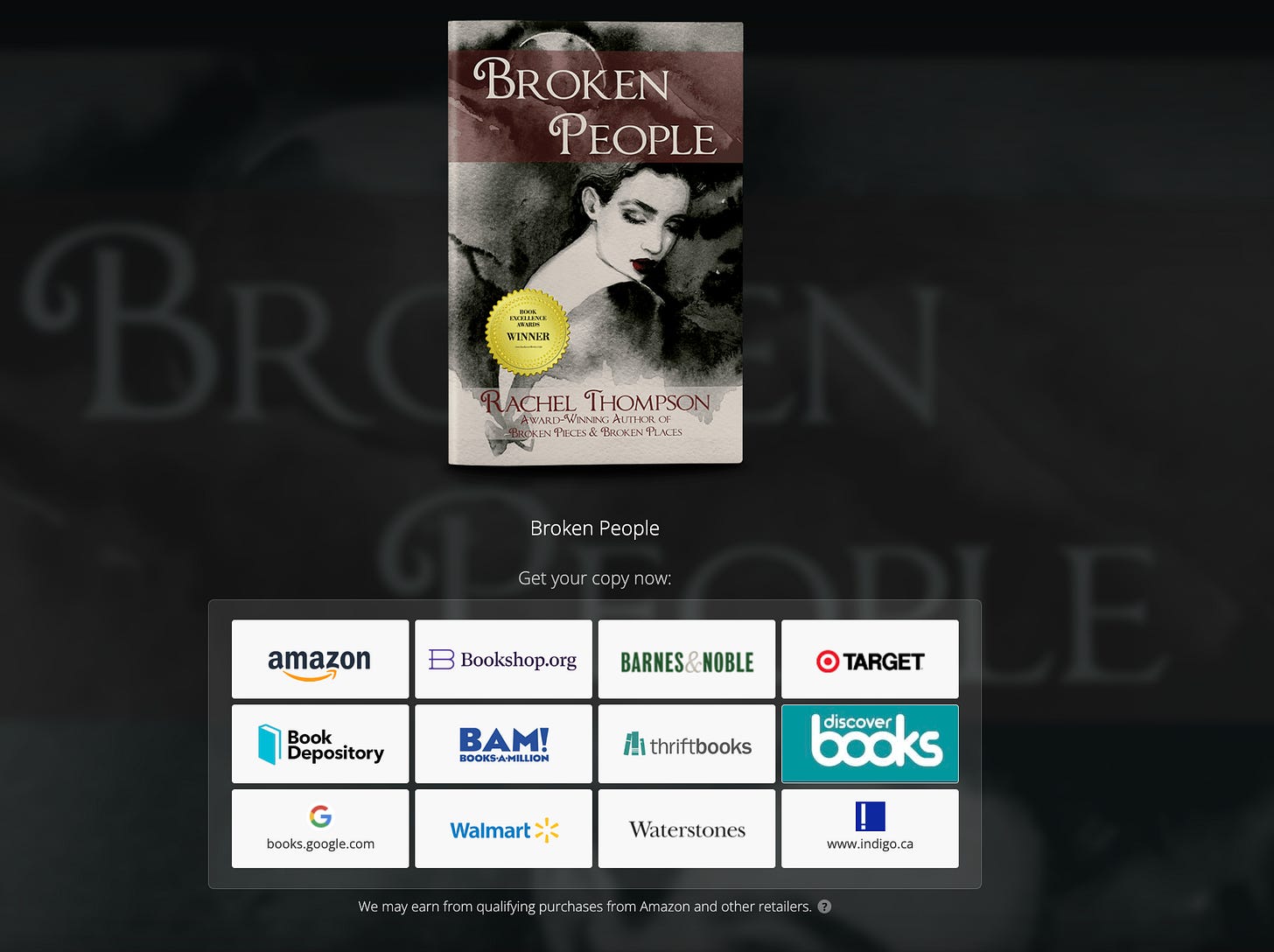

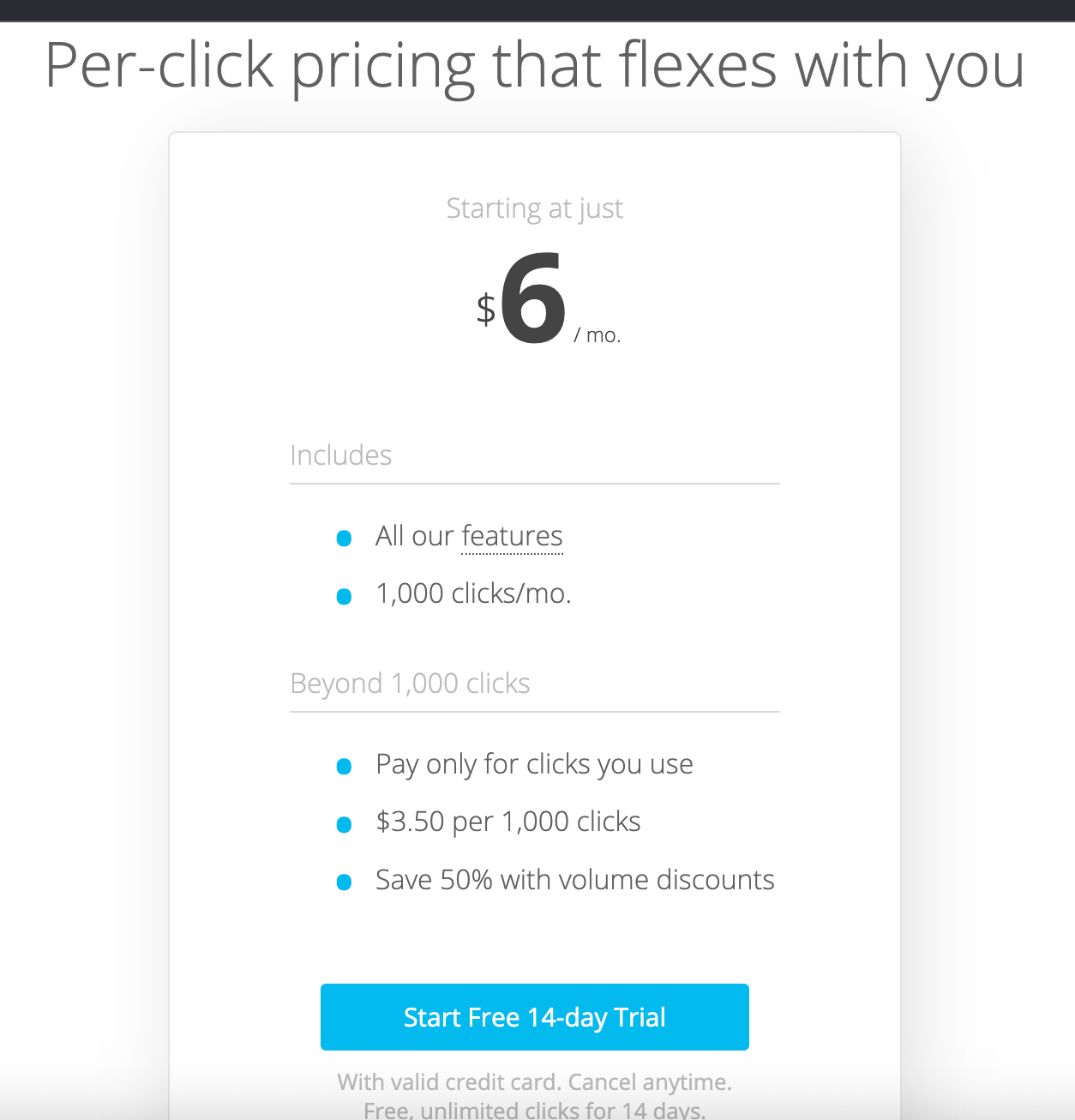
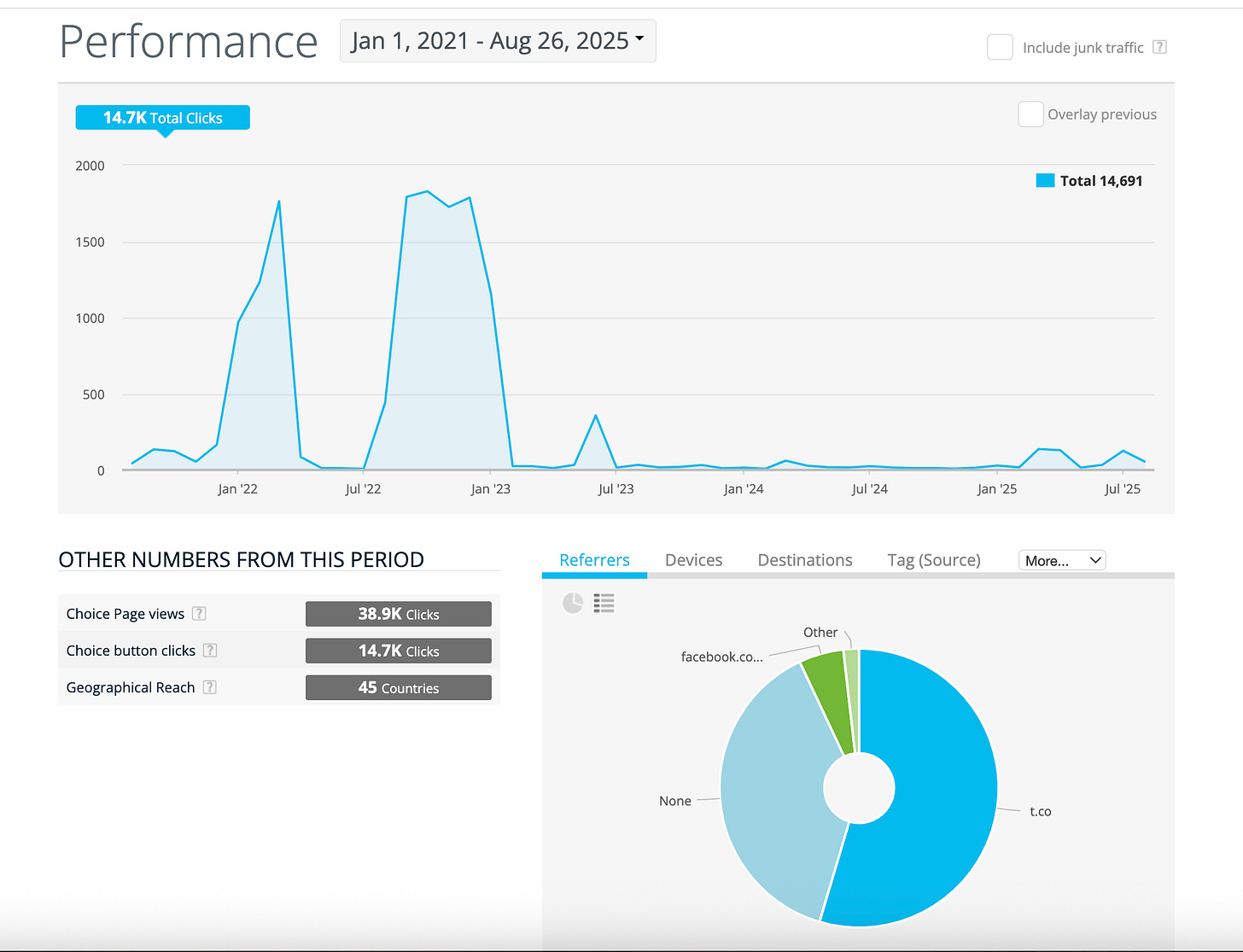
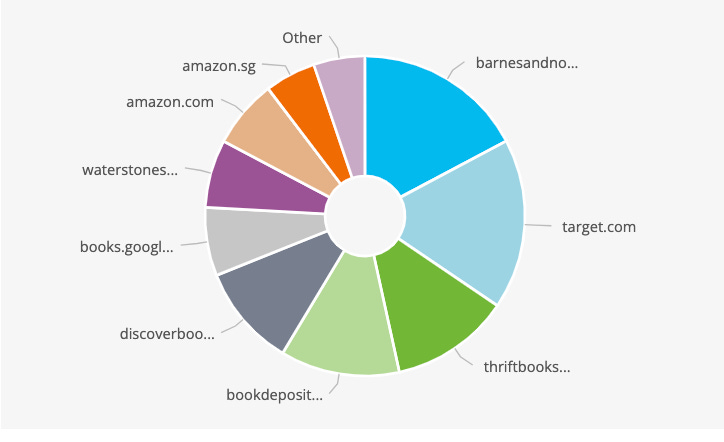
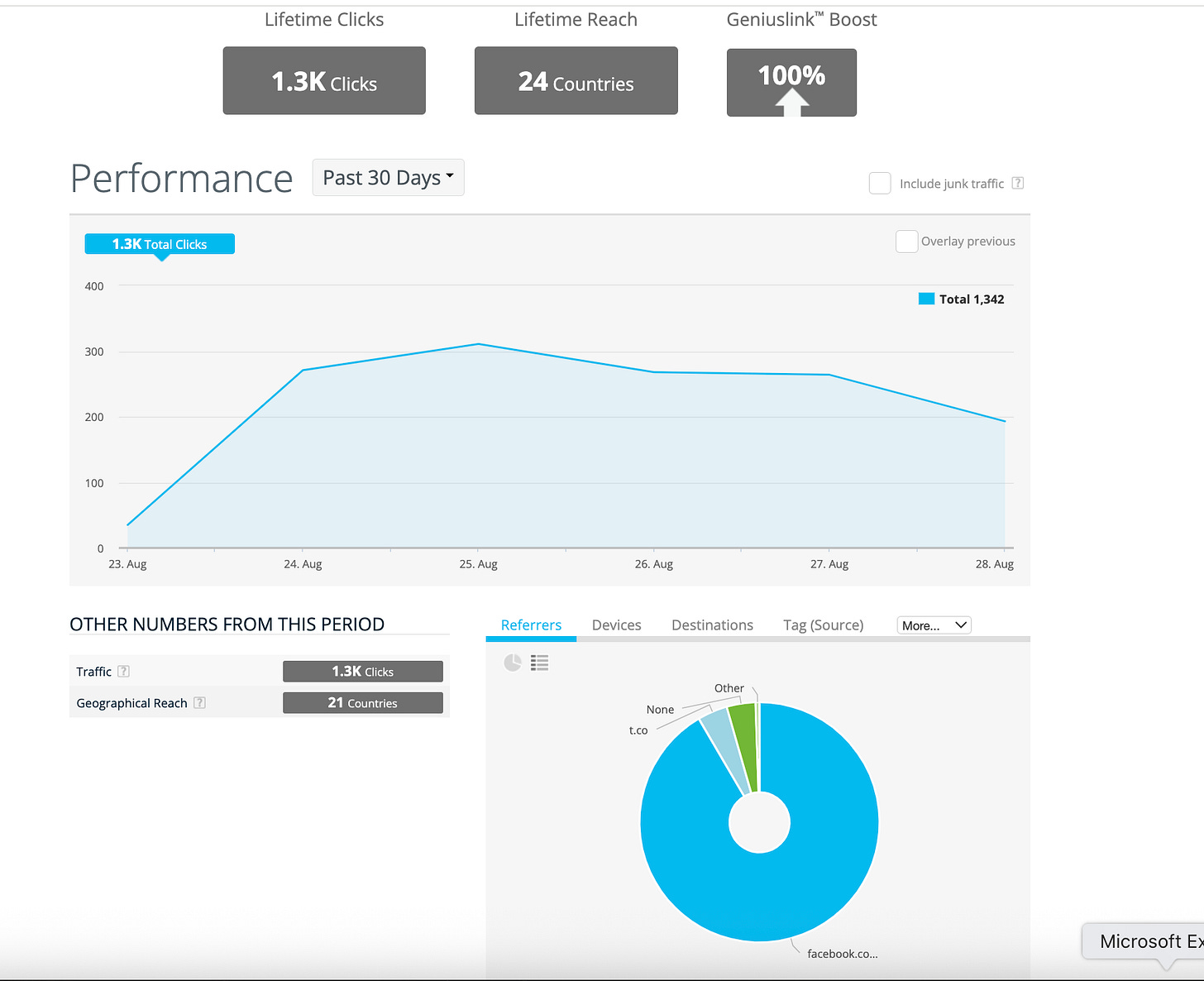
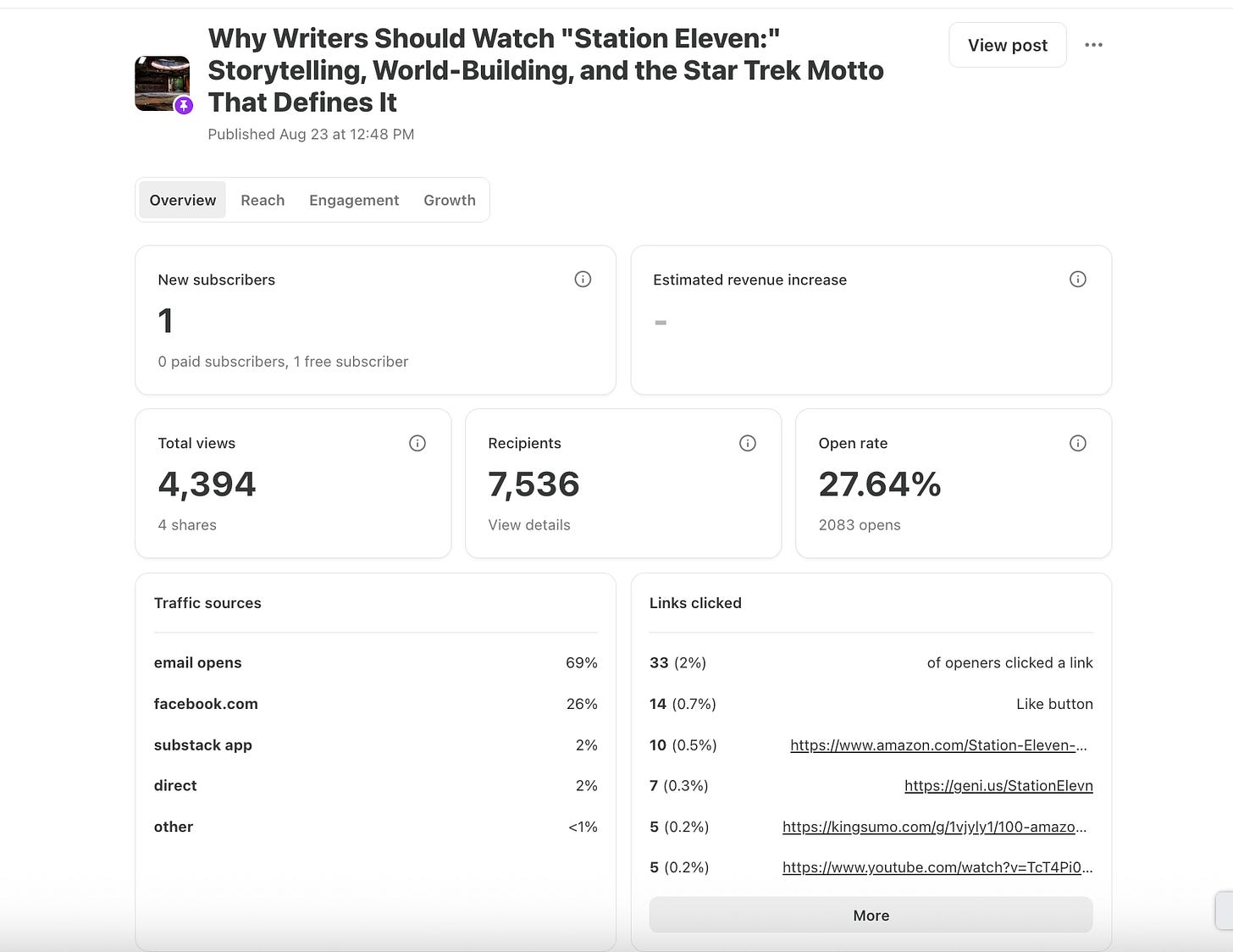
Thank you so much for this post. I already use booklinker for my books, but I am going to have a look at genius links too!
I use Geniuslinks and love it. If you have Amazon affiliate links, they expire after 12 months. They still work but the affiliate no longer pays. If you use them on your website they'll be detected as broken links when the affiliate expires. Ah the details!